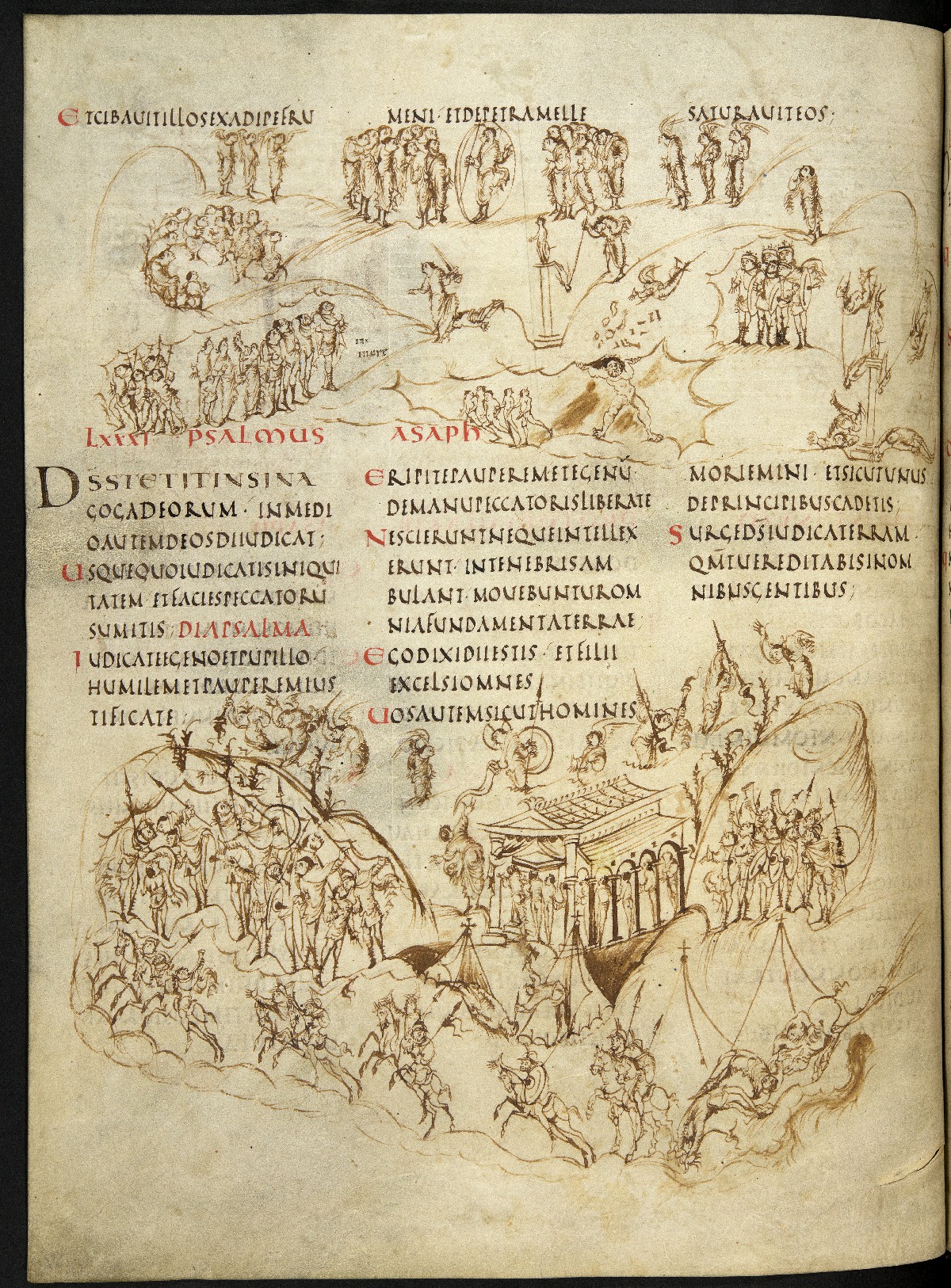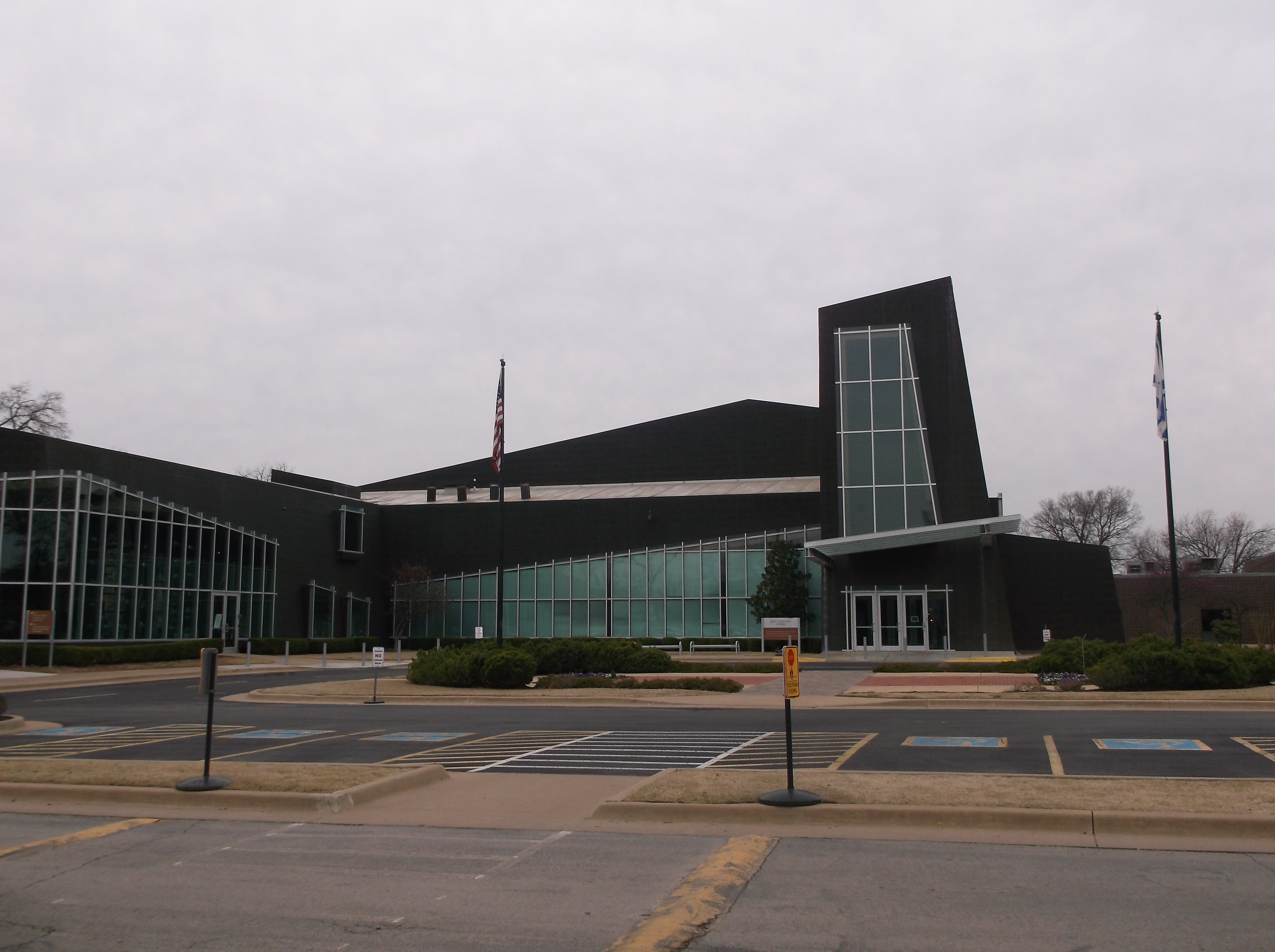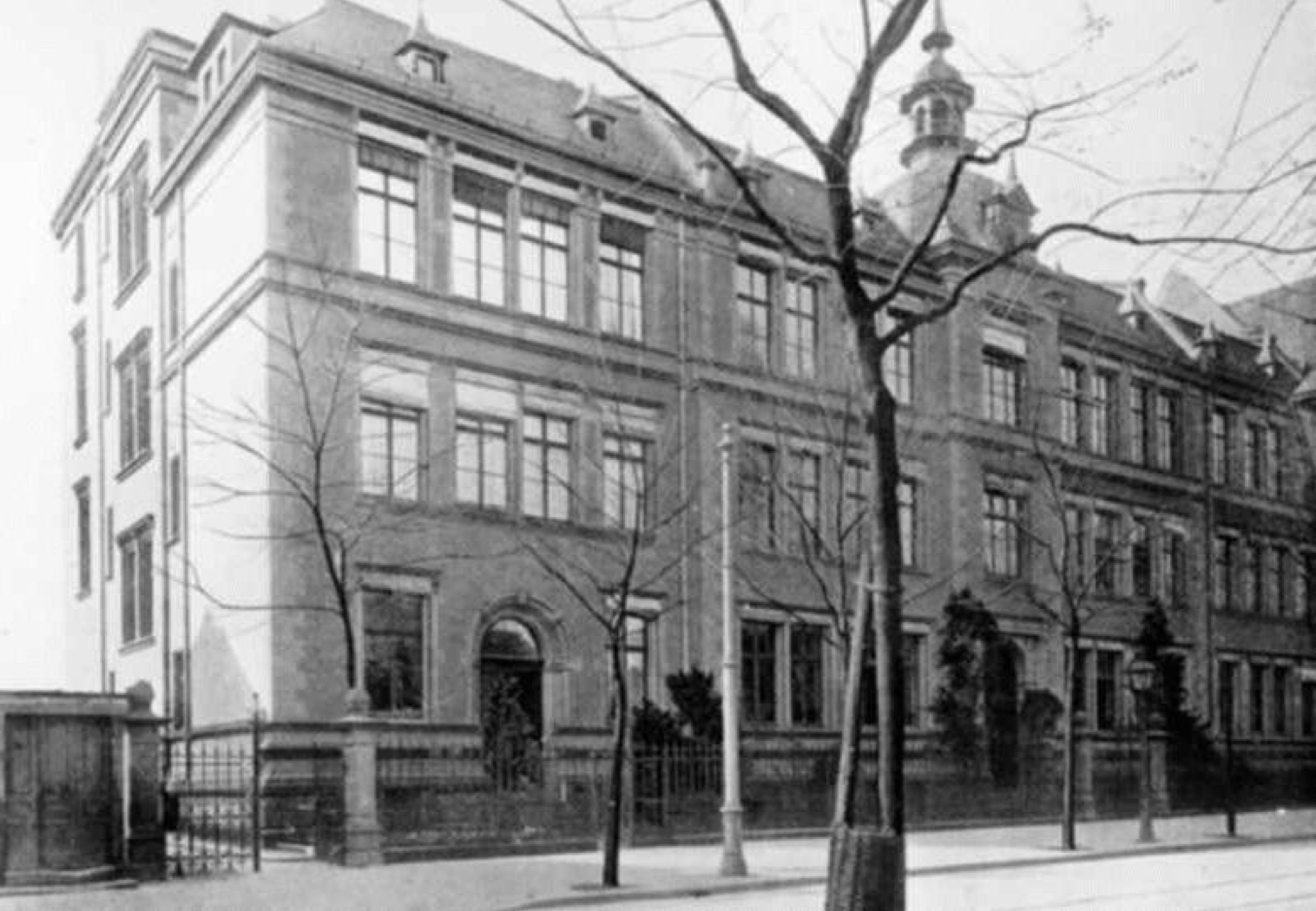|
Gittith
A gittith ( he, גתית) is a musical term of uncertain meaning found in the Bible, most likely referring to a type of musical instrument. Mention in the Bible The term "gittith" is used only three times in the Bible: at the beginnings of Psalm 8, Psalm 81, and Psalm 84. These psalms open with "" (“for the Leader, upon the gittith”), a direction to the chief musician. Further elaboration or explanation of the meaning of the word is not given. Later exegesis Rashi cites Menahem ben Saruq in his claim that a gittith is a type of musical instrument. He then connects the term gittith to the city of Gath, meaning that a gittith would have been made by a Gittite, or a person from Gath. In 1 Samuel 21, David stays with Achish, king of Gath, and could be understood to have taken back with him a musical instrument from Gath. Ibn Ezra makes a similar connection, explaining a gittith to be an instrument made for the Levite descendents of Obed-Edom, who was a Gittite. However, he also ... [...More Info...] [...Related Items...] OR: [Wikipedia] [Google] [Baidu] |
Psalm 81
Psalm 81 is the 81st psalm in the biblical Book of Psalms. Its themes relate to celebration and repentance. In the New King James Version its sub-title is "An Appeal for Israel's Repentance". In the slightly different numbering system of the Greek Septuagint version of the bible, and in its Latin translation, the Vulgate, this psalm is Psalm 80. Text Hebrew Bible version Following is the Hebrew text of Psalm 81: King James Version The following is the full English text of the Psalm from the King James Bible. : To the chief Musician upon Gittith, ''A Psalm'' of Asaph. # Sing aloud unto God our strength: make a joyful noise unto the God of Jacob. # Take a psalm, and bring hither the timbrel, the pleasant harp with the psaltery. # Blow up the trumpet in the new moon, in the time appointed, on our solemn feast day. # For this was a statute for Israel, and a law of the God of Jacob. # This he ordained in Joseph for a testimony, when he went out through the land of Egypt: where I hear ... [...More Info...] [...Related Items...] OR: [Wikipedia] [Google] [Baidu] |
Gitit , a Biblical musical designation
{{disambiguation ...
Gitit may refer to: * Gitit, Bik'at HaYarden, Israeli settlement on the West Bank * Gittith A gittith ( he, גתית) is a musical term of uncertain meaning found in the Bible, most likely referring to a type of musical instrument. Mention in the Bible The term "gittith" is used only three times in the Bible: at the beginnings of Psalm ... [...More Info...] [...Related Items...] OR: [Wikipedia] [Google] [Baidu] |
String Instrument
String instruments, stringed instruments, or chordophones are musical instruments that produce sound from vibrating strings when a performer plays or sounds the strings in some manner. Musicians play some string instruments by plucking the strings with their fingers or a plectrum—and others by hitting the strings with a light wooden hammer or by rubbing the strings with a bow. In some keyboard instruments, such as the harpsichord, the musician presses a key that plucks the string. Other musical instruments generate sound by striking the string. With bowed instruments, the player pulls a rosined horsehair bow across the strings, causing them to vibrate. With a hurdy-gurdy, the musician cranks a wheel whose rosined edge touches the strings. Bowed instruments include the string section instruments of the orchestra in Western classical music ( violin, viola, cello and double bass) and a number of other instruments (e.g., viols and gambas used in early music from the ... [...More Info...] [...Related Items...] OR: [Wikipedia] [Google] [Baidu] |
Obed-Edom
Obed-Edom is a biblical name which in Hebrew means "servant of Edom," and which appears in the books of 2 Samuel and 1 and 2 Chronicles. The relationship between these passages has been the subject of scholarly discussions which express uncertainty and disagreements about the relationships between various passages that use the name. Biblical texts The following sections reflect every mention of the name Obed-Edom in the Hebrew Bible. Obed-Edom in Samuel In 1 Samuel 4, the Philistines, a neighboring people, capture the Ark of the Covenant, also known as the "Ark of God", a sacred object of the Israelites, during the Battle of Aphek. The Philistines then take the Ark into their own territory, leading God to attack the Philistines with illness (1 Samuel 5). Eventually, the Philistines realize that they cannot safely keep the Ark, and place it on a cart pulled by two cattle, who return it to the Israelites along with a peace-offering (1 Samuel 6). After this, the Israelites take it ... [...More Info...] [...Related Items...] OR: [Wikipedia] [Google] [Baidu] |
Gitit, Bik'at HaYarden
Gitit ( he, גִּתִּית) is a moshav and Israeli settlement in the West Bank.Gitit Bik'at HaYarden Regional Council Located in the with an area of , it falls under the jurisdiction of . In it had a population of . The international community considers Israeli settlements in the West Bank illegal under international law, but the Isr ... [...More Info...] [...Related Items...] OR: [Wikipedia] [Google] [Baidu] |
Moshav
A moshav ( he, מוֹשָׁב, plural ', lit. ''settlement, village'') is a type of Israeli town or settlement, in particular a type of cooperative agricultural community of individual farms pioneered by the Labour Zionists between 1904 and 1914, during what is known as the second wave of ''aliyah''. A resident or a member of a moshav can be called a "moshavnik" (). The moshavim are similar to kibbutzim with an emphasis on community labour. They were designed as part of the Zionist state-building programme following the green revolution Yishuv ("settlement") in the British Mandate of Palestine during the early 20th century, but in contrast to the collective farming kibbutzim, farms in a moshav tended to be individually owned but of fixed and equal size. Workers produced crops and other goods on their properties through individual or pooled labour with the profit and foodstuffs going to provide for themselves. Moshavim are governed by an elected council ( he, ועד, ... [...More Info...] [...Related Items...] OR: [Wikipedia] [Google] [Baidu] |
The Forward
''The Forward'' ( yi, פֿאָרווערטס, Forverts), formerly known as ''The Jewish Daily Forward'', is an American news media organization for a Jewish American audience. Founded in 1897 as a Yiddish-language daily socialist newspaper, ''The New York Times'' reported that Seth Lipsky "started an English-language offshoot of the Yiddish-language newspaper" as a weekly newspaper in 1990. In the 21st century ''The Forward'' is a digital publication with online reporting. In 2016, the publication of the Yiddish version changed its print format from a biweekly newspaper to a monthly magazine; the English weekly paper followed suit in 2017. Those magazines were published until 2019. ''The Forward''s perspective on world and national news and its reporting on the Jewish perspective on modern United States have made it one of the most influential American Jewish publications. It is published by an independent nonprofit association. It has a politically progressive editorial ... [...More Info...] [...Related Items...] OR: [Wikipedia] [Google] [Baidu] |
Oklahoma
Oklahoma (; Choctaw language, Choctaw: ; chr, ᎣᎧᎳᎰᎹ, ''Okalahoma'' ) is a U.S. state, state in the South Central United States, South Central region of the United States, bordered by Texas on the south and west, Kansas on the north, Missouri on the northeast, Arkansas on the east, New Mexico on the west, and Colorado on the northwest. Partially in the western extreme of the Upland South, it is the List of U.S. states and territories by area, 20th-most extensive and the List of U.S. states and territories by population, 28th-most populous of the 50 United States. Its residents are known as Oklahomans and its capital and largest city is Oklahoma City. The state's name is derived from the Choctaw language, Choctaw words , 'people' and , which translates as 'red'. Oklahoma is also known informally by its List of U.S. state and territory nicknames, nickname, "Sooners, The Sooner State", in reference to the settlers who staked their claims on land before the official op ... [...More Info...] [...Related Items...] OR: [Wikipedia] [Google] [Baidu] |
Tulsa
Tulsa () is the second-largest city in the state of Oklahoma and 47th-most populous city in the United States. The population was 413,066 as of the 2020 census. It is the principal municipality of the Tulsa Metropolitan Area, a region with 1,023,988 residents. The city serves as the county seat of Tulsa County, the most densely populated county in Oklahoma, with urban development extending into Osage, Rogers, and Wagoner counties. Tulsa was settled between 1828 and 1836 by the Lochapoka Band of Creek Native American tribe and most of Tulsa is still part of the territory of the Muscogee (Creek) Nation. Historically, a robust energy sector fueled Tulsa's economy; however, today the city has diversified and leading sectors include finance, aviation, telecommunications and technology. Two institutions of higher education within the city have sports teams at the NCAA Division I level: Oral Roberts University and the University of Tulsa. As well, the University of Oklahoma ... [...More Info...] [...Related Items...] OR: [Wikipedia] [Google] [Baidu] |
Sherwin Miller Museum Of Jewish Art
The Sherwin Miller Museum of Jewish Art (SMMJA) in Tulsa, Oklahoma, was founded in 1966 as the Gershon & Rebecca Fenster Museum of Jewish Art. From its inception until 1998, Tulsa's Congregation B'nai Emunah Synagogue housed the museum.Sherwin Miller Museum of Jewish Art Greencountryok.com (accessed May 6, 2010) Sherwin Miller was the museum's first curator."Our History". Sherwin Miller Museum of Jewis ... [...More Info...] [...Related Items...] OR: [Wikipedia] [Google] [Baidu] |
Samson Raphael Hirsch
Samson Raphael Hirsch (; June 20, 1808 – December 31, 1888) was a German Orthodox rabbi best known as the intellectual founder of the '' Torah im Derech Eretz'' school of contemporary Orthodox Judaism. Occasionally termed ''neo-Orthodoxy'', his philosophy, together with that of Azriel Hildesheimer, has had a considerable influence on the development of Orthodox Judaism. Hirsch was rabbi in Oldenburg, Emden, and was subsequently appointed chief rabbi of Moravia. From 1851 until his death, Hirsch led the secessionist Orthodox community in Frankfurt am Main. He wrote a number of influential books, and for a number of years published the monthly journal ''Jeschurun'', in which he outlined his philosophy of Judaism. He was a vocal opponent of Reform Judaism, Zionism, and similarly opposed early forms of Conservative Judaism. Early years and education Hirsch was born in Hamburg, which was then a part of Napoleonic France. His father, Raphael Arye Hirsch, though a merchant, devo ... [...More Info...] [...Related Items...] OR: [Wikipedia] [Google] [Baidu] |
Midrash Tehillim
Midrash Tehillim (Hebrew: מדרש תהלים), also known as Midrash Shocher Tov or the Midrash to Psalms, is an aggadic midrash to the Psalms. It has been known since the 11th century, when it was quoted by Nathan of Rome, by R. Isaac ben Judah ibn Ghayyat, and by Rashi, who quoted it in his commentary on I Samuel 17:49, and on many other passages. Names The midrash is also known as "Aggadat Tehillim" or "Haggadat Tehillim". Beginning in the 12th century, it was also called "Shocher Tov", because it begins with the verse Proverbs 11:27, "שחר טוב יבקש רצון ודרש רעה תבואנו". In addition, the Hebrew acronym for "Shocher Tov" (ש"ט) has been mistakenly expanded as "Shem Tov" or "Shem Tob", and the midrash referred to by that name. Editions The true midrash covers only Psalms 1–118, and this is all that is found either in the manuscripts or in the first edition. In the second edition, a supplement was added covering (with the exception of two psalms ... [...More Info...] [...Related Items...] OR: [Wikipedia] [Google] [Baidu] |








